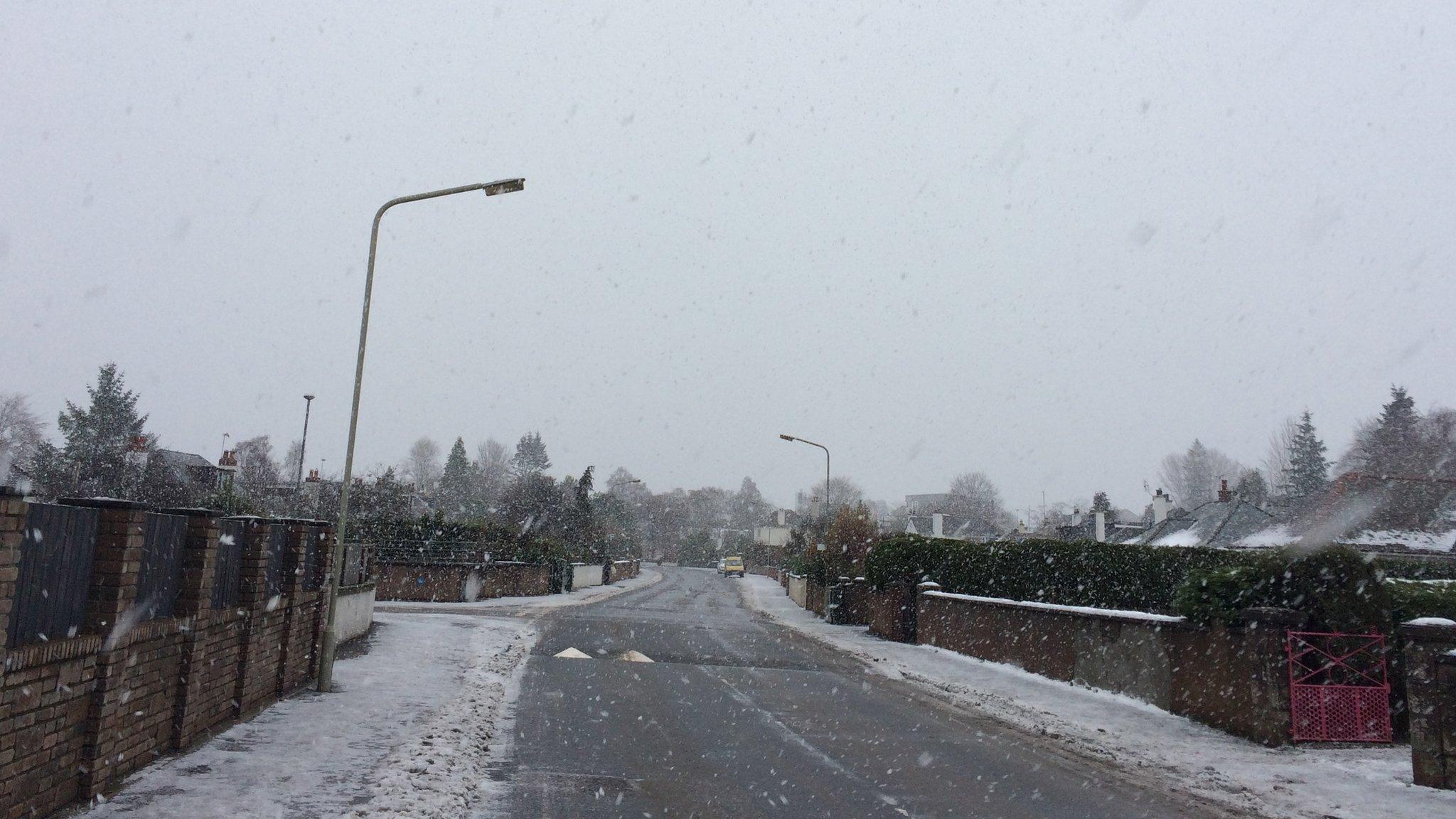Heavy snow disrupts travel across Scotland
- Published
Flights are likely to be affected for the rest of the day.
Heavy snow is causing disruption to travel across Scotland.
Wintry conditions continue to cross the country towards the east with new warnings issued for high winds on Hogmanay.
Glasgow Airport bosses have apologised to passengers after flights at the terminal were suspended temporarily due to heavy snowfall.
The airport is now fully operational but there will be a knock-on effect on the schedule for the rest of the day.
Police Scotland issued a Stage 2 warning - meaning drivers should ensure they are adequately prepared with fuel, warm clothing, food and water.
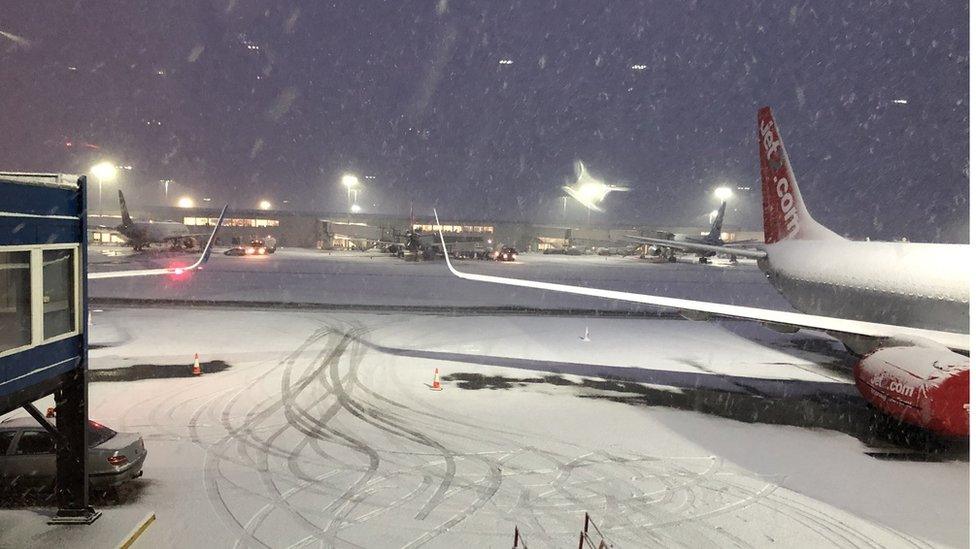
Flights are likely to be affected for the rest of the day and advice is to check with your airline
A Met Office yellow "be aware" warning is in place for snow across central and southern Scotland after one of the coldest nights of the year.
The mercury plummeted to -12.3C (9.8F) at Loch Glascarnoch in the Highlands overnight.
The weather warning is valid from 03:00 GMT on Friday until 15:00, it was predicted to bring up to 5cm of snow at low levels, and 10-15cm on ground above 250 metres.
Allow X content?
This article contains content provided by X. We ask for your permission before anything is loaded, as they may be using cookies and other technologies. You may want to read X’s cookie policy, external and privacy policy, external before accepting. To view this content choose ‘accept and continue’.
Traffic Scotland live cameras showed snow falling on the M74 and M9, as well as at the Rest and Be Thankful on the A83.
A lorry jack-knifed on the A737 in Renfrewshire, between Lochwinnoch and Brookfield, with a few vehicles struggling in the snow.
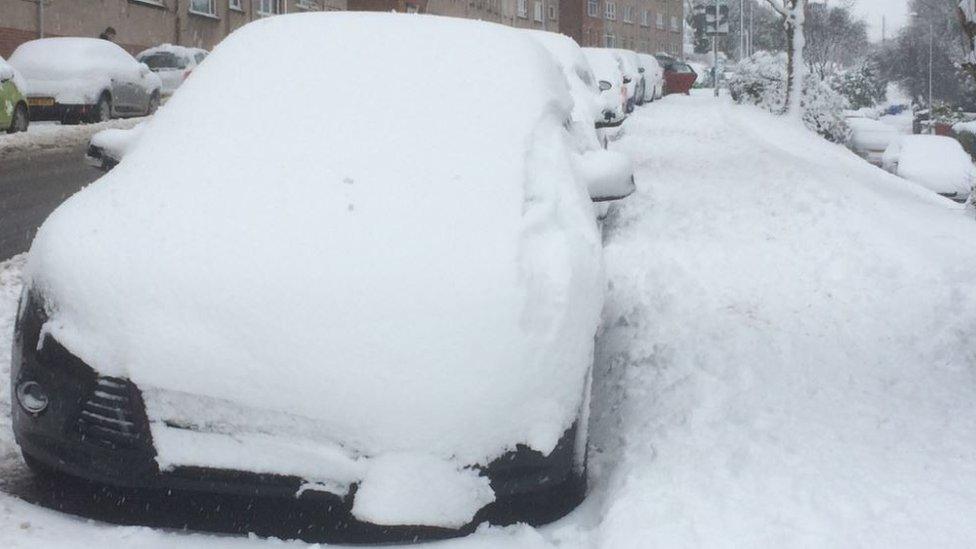
The snowfall was significant in Greenock, and it continued to snow into the afternoon
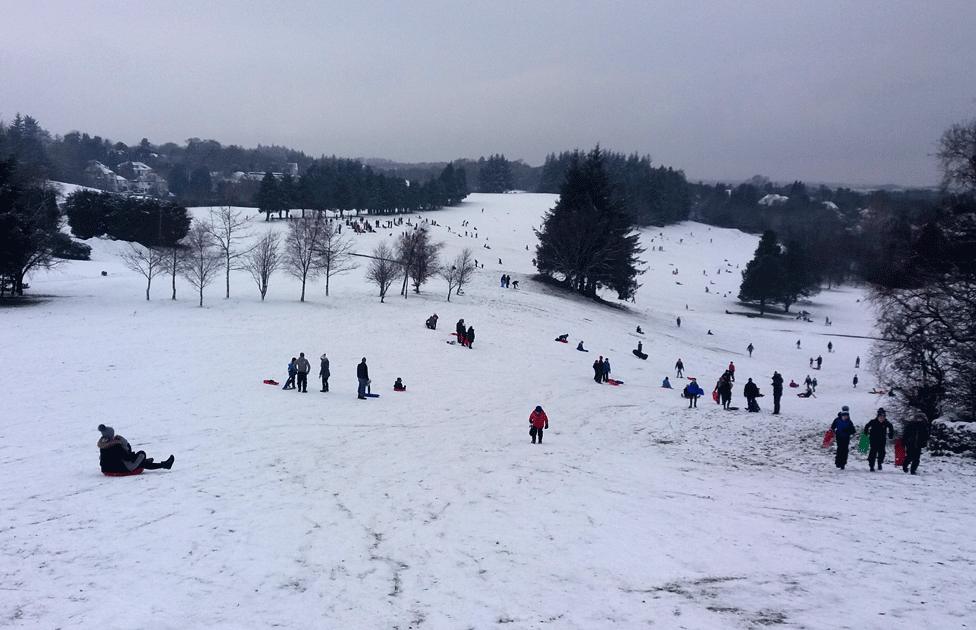
The snow brought dozens of people onto the hills of Cathcart Castle Golf Club in Clarkston, East Renfrewshire
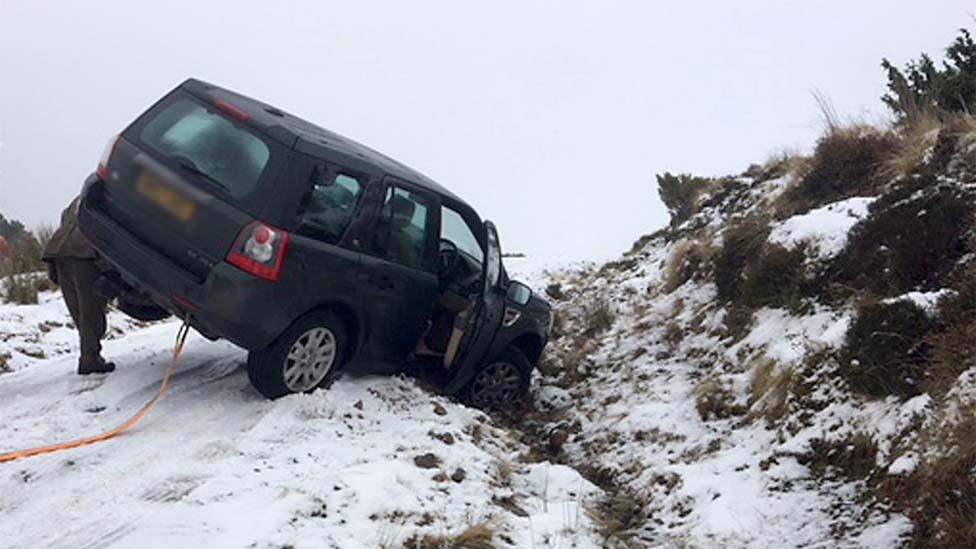
A BBC Weather Watcher spotted a car being pulled from a ditch in Glenrothes
Elsewhere, problems were reported on the roads:
Heavy snowfall was affecting the M8 at Duntilland and Shotts with gritters and a snow plough remaining in the area to keep roads clear.
Dumfriesshire saw some fairly significant accumulations of snow - with tricky driving conditions in and around Dumfries, on the M74 around Beattock and on the A7 in the Langholm area.
Police in Dumfries and Galloway attended reports of a four vehicle collision on the A711 near Beeswing.
Cars were struggling to climb the hill on the A7 just south of Langholm due to snow.
The A714 was closed north of Newton Stewart and there were reports of a number of crashes on the A76.
McGill's buses suspended its services in Inverclyde.
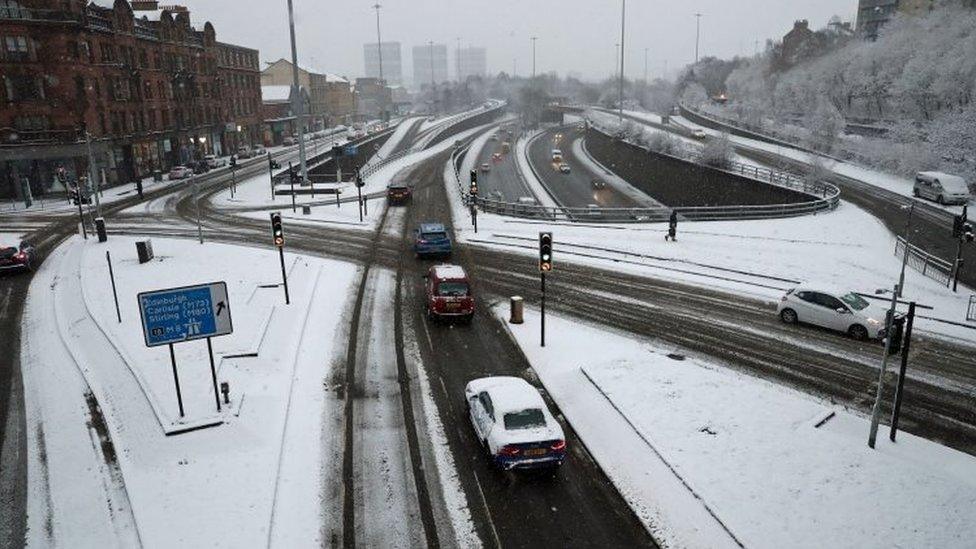
The roads are quieter than usual in Charing Cross, Glasgow
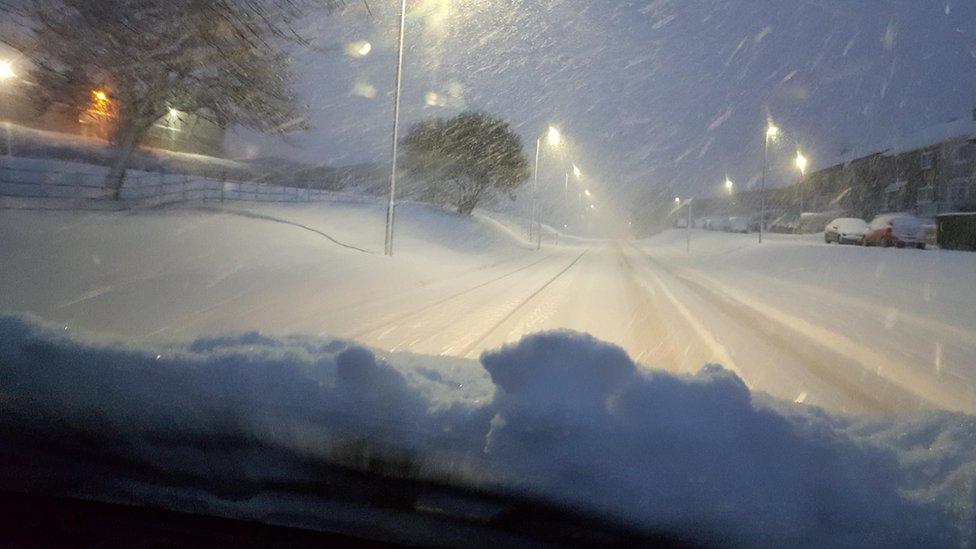
There were poor driving conditions in Port Glasgow in Inverclyde
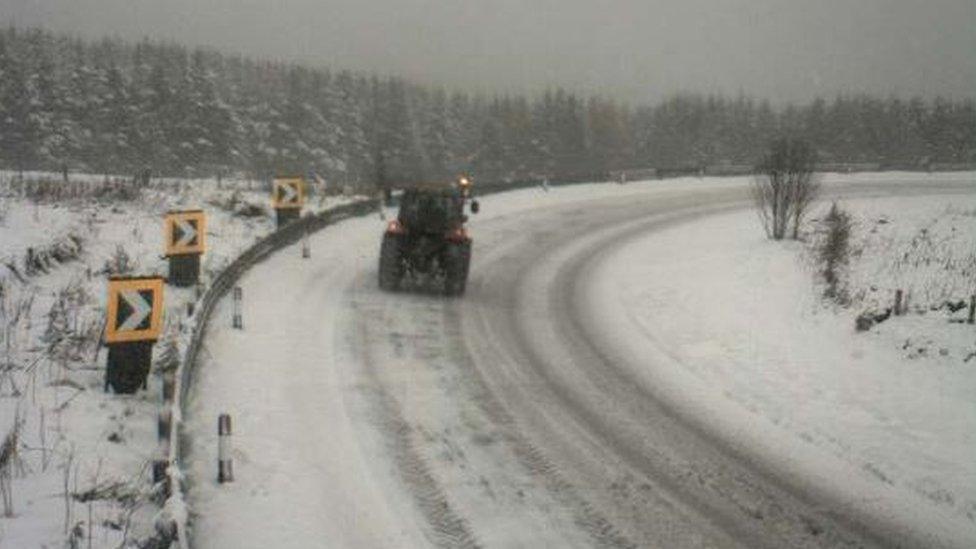
A tractor works to clear the A68 at Carter Bar
Ralph Roberts from McGills buses said conditions were too dangerous for services to run.
"Because the depot is based at the top of quite a steep hill, the road just became completely impassable so the remainder of the buses were blocked in the depot," he said.
"Then the buses that got out couldn't really serve the areas they were out to serve, so they were stranded. We had a few close calls so we had to make the decision to suspend all services."
Services for the elderly were also affected in North Ayrshire as the Day Care programme was cancelled in Largs and Kilbirnie due to concerns about getting people in and out of centres.
Areas covered by the yellow snow warning included Edinburgh, Glasgow, Stirling, Falkirk, Fife, the Lothians, the Borders, Lanarkshire, Ayrshire, Renfrewshire, East Renfrewshire, Dunbartonshire, Clackmannanshire, Perth and Kinross, Argyll and Bute and Dumfries and Galloway.
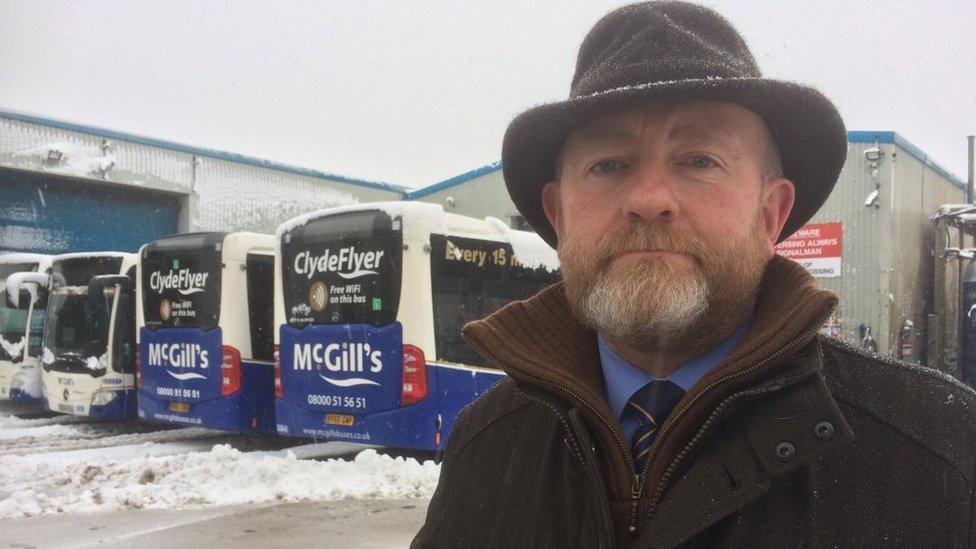
Ralph Roberts, from McGill's, told BBC Scotland conditions were too dangerous in Inverclyde to run buses
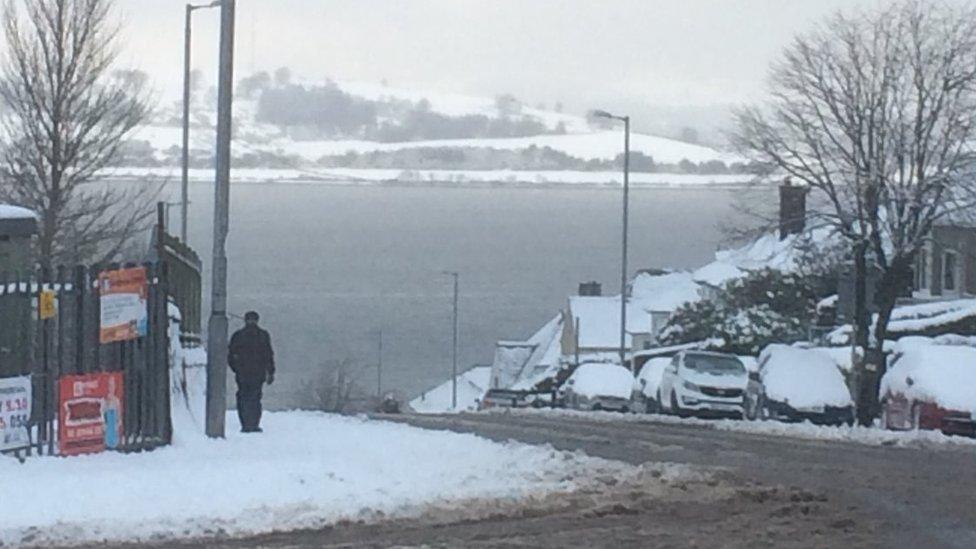
Tricky walking, and driving, conditions after snowfall in Gourock
A yellow warning for ice was in place from 15:00 on Thursday until midday on Friday for Scotland's north east, the Highlands, Shetland and Orkney.
The Met Office have also issued yellow warnings for strong winds on Hogmanay.
The alerts cover southern and central Scotland, Tayside and Fife between 00:05 and 15:00 on Sunday 31 December.
On Thursday, the Met Office had warned the country could see the "coldest night of the year so far" before the snow blanketed some parts.
A spokeswoman said temperatures could fall below -13C, which was recorded earlier this year, but in fact the lowest overnight temperature fell slightly short at -12.3C.
The yellow ice warning was due to affect the north east, the Highlands, Shetland and Orkney, with showers of rain, sleet and snow likely to cause treacherous conditions.
The ice is expected to dry out over the course of Friday morning and will mostly affect inland areas as opposed to coastal areas.
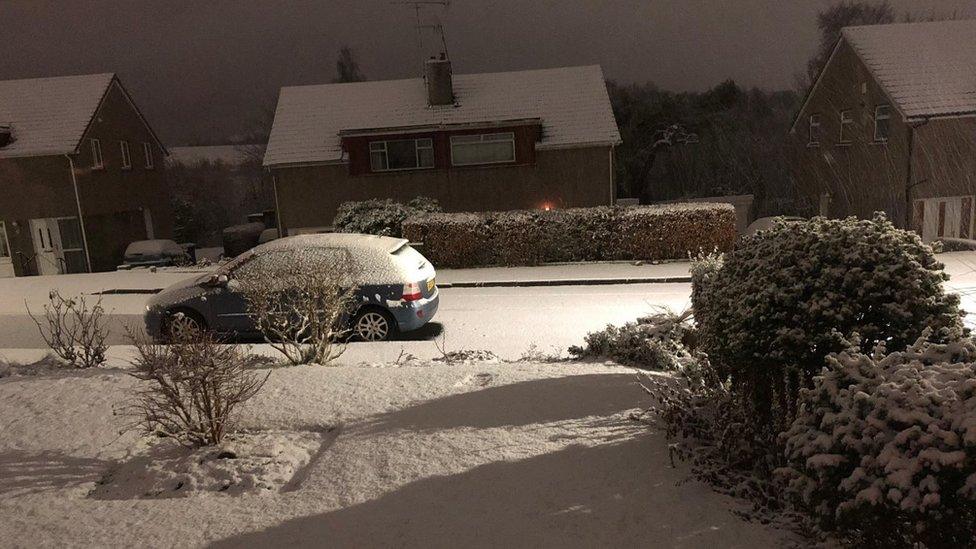
Snow covering in Paisley on Friday morning
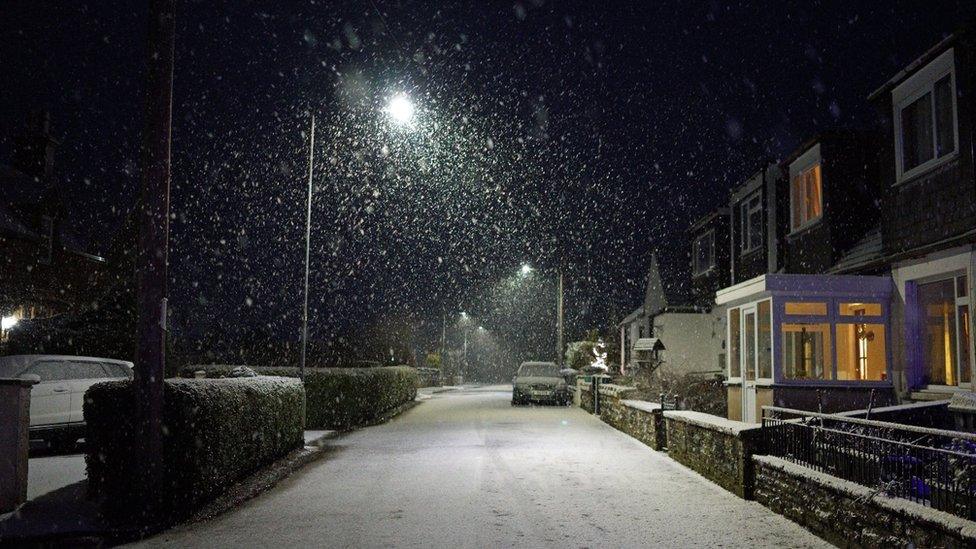
Snow was also falling in Dumfries
Up to 2cm of snow could lie at around 100 metres above ground.
On Wednesday evening, three climbers had to be rescued from the Cairngorms mountain range after getting lost in freezing blizzard conditions.
NHS Lanarkshire revealed the pre-Christmas cold snap had almost tripled the number of broken or dislocated wrists, ankles and hips treated in its hospitals.
There were so many trauma cases due to falls that dedicated staff carried out a week-and-a-half's work in just three days.
NHS Lanarkshire service manager for trauma and orthopaedics Stephen Peebles said: "The number of trauma cases is typically around 50 a week at this time of year. But we carried out an unprecedented total of 124 operations from December 15 to 21."
- Published14 December 2017
